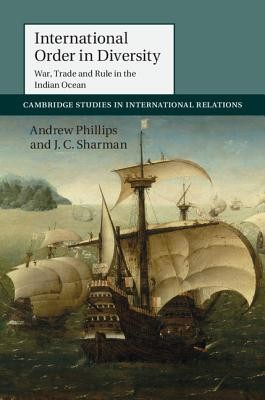
- We will send in 10–14 business days.
- Author: Andrew Phillips
- Publisher: Cambridge University Press
- ISBN-10: 1107084830
- ISBN-13: 9781107084834
- Format: 14.7 x 22.9 x 1.8 cm, kieti viršeliai
- Language: English
- SAVE -10% with code: EXTRA
Reviews
Description
International relations scholars typically expect political communities to resemble one another the more they are exposed to pressures of war, economic competition and the spread of hegemonic legitimacy standards. However, historically it is heterogeneity, not homogeneity, that has most often defined international systems. Examining the Indian Ocean region - the centre of early modern globalization - Andrew Phillips and J. C. Sharman explain how diverse international systems can emerge and endure. Divergent preferences for terrestrial versus maritime conquest, congruent traditions of heteronomy and shared strategies of localization were factors which enabled diverse actors including the Portuguese Estado da India, Dutch and English company sovereigns and mighty Asian empires to co-exist for centuries without converging on a common institutional form. Debunking the presumed relationship between interaction and homogenization, this book radically revises conventional thinking on the evolution of international systems, while deepening our understanding of a historically crucial but critically understudied world region.
EXTRA 10 % discount with code: EXTRA
The promotion ends in 22d.18:48:44
The discount code is valid when purchasing from 10 €. Discounts do not stack.
- Author: Andrew Phillips
- Publisher: Cambridge University Press
- ISBN-10: 1107084830
- ISBN-13: 9781107084834
- Format: 14.7 x 22.9 x 1.8 cm, kieti viršeliai
- Language: English English
International relations scholars typically expect political communities to resemble one another the more they are exposed to pressures of war, economic competition and the spread of hegemonic legitimacy standards. However, historically it is heterogeneity, not homogeneity, that has most often defined international systems. Examining the Indian Ocean region - the centre of early modern globalization - Andrew Phillips and J. C. Sharman explain how diverse international systems can emerge and endure. Divergent preferences for terrestrial versus maritime conquest, congruent traditions of heteronomy and shared strategies of localization were factors which enabled diverse actors including the Portuguese Estado da India, Dutch and English company sovereigns and mighty Asian empires to co-exist for centuries without converging on a common institutional form. Debunking the presumed relationship between interaction and homogenization, this book radically revises conventional thinking on the evolution of international systems, while deepening our understanding of a historically crucial but critically understudied world region.


Reviews